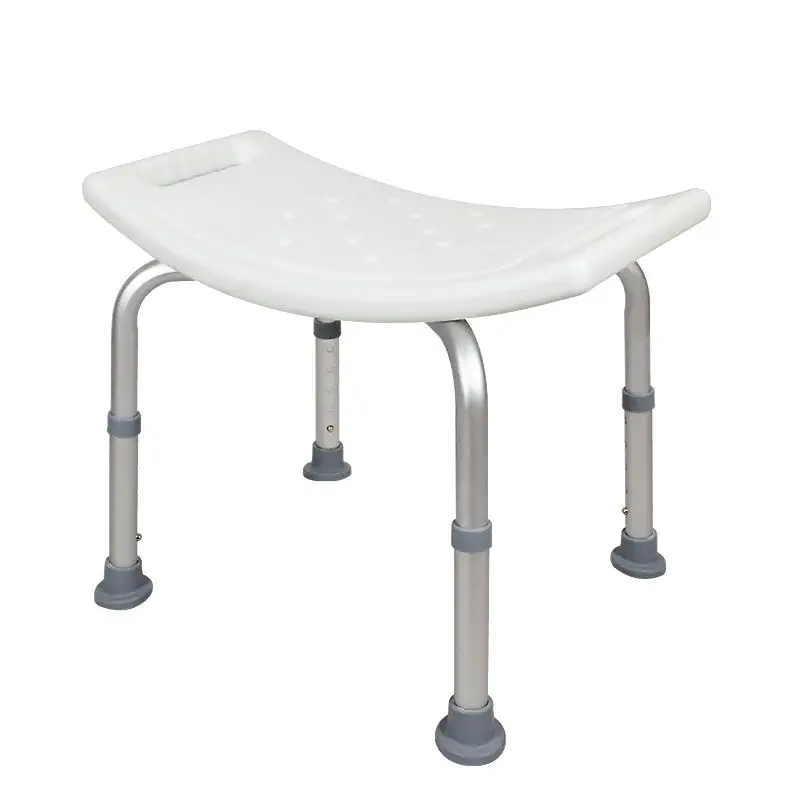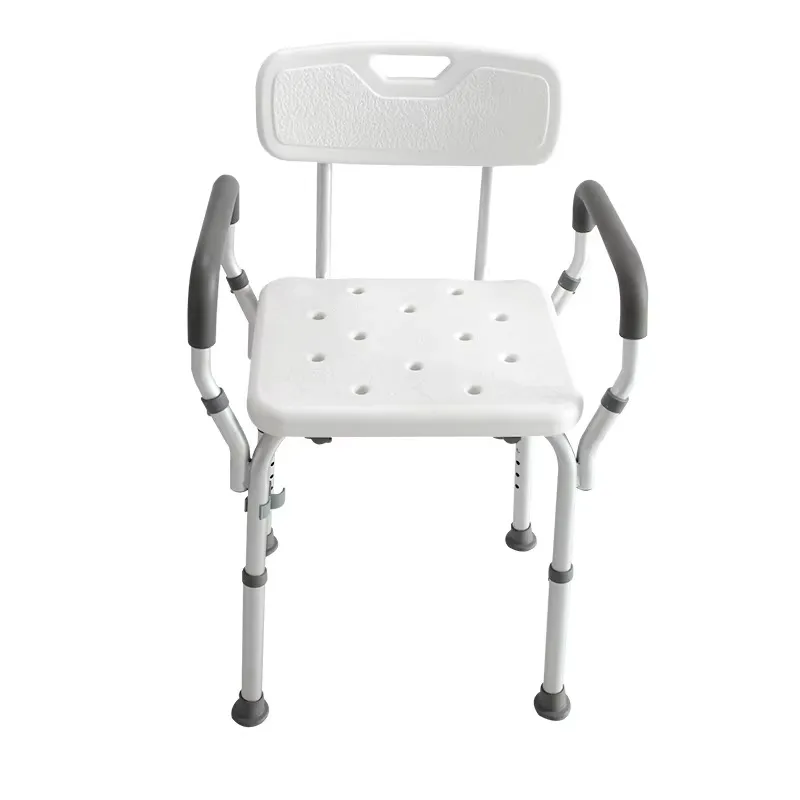
A shower chair is an essential bathroom aid designed to provide safety and comfort for individuals with mobility limitations. The key features of a shower chair include a sturdy, waterproof frame,typically made from rust-resistant materials like aluminum or plastic, ensuring durability and resistance to water exposure. These chairs are equipped with non-slip feet or suction cups that provide stability and prevent sliding on wet surfaces, reducing the risk of falls. Many shower chairs have adjustable heights, allowing users to customize the seat to their specific needs for added comfort and ease of use. The seat itself is often designed with drainage holes to allow water to flow through, preventing water accumulation and ensuring the user remains comfortable during use. Additionally, some models come with backrests and armrests, offering extra support and providing a more secure sitting position. The design of shower chairs also includes lightweight frames, making them easy to move or reposition as needed, and folding options for convenient storage in smaller spaces. Some shower chairs are designed to be portable, making them ideal for travel or temporary use. Furthermore, many chairs are designed with ergonomic features to provide maximum comfort, particularly for individuals with limited strength or endurance, ensuring that the user can remain seated comfortably for extended periods.
How Do Shower Chairs Benefit Users and Healthcare Providers?
Shower chairs offer significant benefits to both users and healthcare providers by enhancing safety, independence, and comfort in the bathroom. For users, shower chairs provide a safe and stable seating option, allowing individuals with mobility issues to bathe without the risk of slipping or falling. This increased safety is especially important for elderly individuals, people recovering from surgery, or those with conditions like arthritis or neurological impairments. Shower chairs help users maintain their independence by enabling them to bathe on their own without the constant need for assistance, improving their quality of life and boosting their confidence. The ergonomic design and adjustable features ensure that the chair can be tailored to the user’s specific needs, promoting comfort and reducing the strain on muscles or joints. For healthcare providers, shower chairs are essential in offering safe and effective support during bathing, a common activity in both home healthcare and institutional settings. They help providers ensure that patients are bathed in a way that maintains their dignity while minimizing the risk of accidents or injuries. Healthcare professionals also benefit from the ease of use and portability of shower chairs, as they can be quickly adjusted, cleaned, and stored, making them a practical tool in daily patient care routines. Additionally, shower chairs reduce the physical strain on caregivers, as patients are more self-sufficient, allowing healthcare providers to focus on other aspects of care.
How To Choose The Right Shower Chair For A Patient or Healthcare Facility?
Choosing the right shower chair for a patient or healthcare facility involves evaluating the individual’s mobility needs, comfort preferences, and the specific requirements of the bathroom or facility environment. First, consider the patient’s level of independence and the level of support required. For individuals who need additional security, a shower chair with armrests and a backrest may be beneficial to provide extra support and stability. For those with limited strength, a chair with adjustable height and easy-to-reach controls can help provide a more customized and comfortable experience. Another important factor is the material of the chair; lightweight, rust-resistant materials such as aluminum or high-quality plastic are essential for ensuring long-lasting durability and safety in wet conditions. The design of the chair should prioritize comfort, with padded or contoured seats to minimize discomfort during prolonged sitting. Non-slip feet or suction cups are essential for preventing sliding on wet surfaces, ensuring the chair remains stable during use. Additionally, foldable or portable shower chairs are ideal for smaller spaces or for those who need a chair that can be easily stored or transported. For healthcare facilities, consider the chair’s weight capacity, ease of cleaning, and whether it meets safety standards, as these factors can help streamline patient care and maintain hygiene. It’s also important to check whether the chair is compatible with other bathroom equipment, such as handheld showers or shower heads, to ensure maximum convenience and effectiveness.



 PDF
PDF


